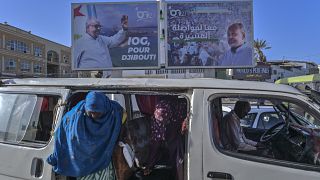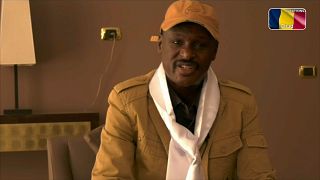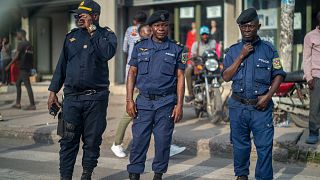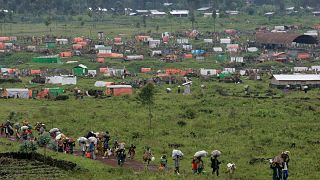Democratic Republic Of Congo
Egypt, Sudan and Ethiopia failed to make progress in the latest round of African Union-led talks to resolve their years-long dispute over a controversial dam that Ethiopia is building on the Blue Nile River.
Foreign and irrigation ministers of the three nations met in Kinshasa, the capital of the Democratic Republic of Congo, the current chair of the African Union. That round of talks sought to find an agreed-on approach to resume negotiations on the filling and operation of the Grand Ethiopia Renaissance Dam.
However, the four days of meetings concluded without a breakthrough after Ethiopia rejected a Sudanese proposal, backed by Egypt, to include international mediators in the talks, Egypt and Sudan said. Egypt's top diplomat said they would again take the dispute to the U.N. Security Council.
Ethiopia's foreign minister, Demeke Mekonnen, in a brief statement posted on Facebook said his country appreciates the AU's efforts to resume the AU-led process "to reach a win-win outcome and invites Egypt and Sudan to follow suit.''
The foreign ministry in a separate statement asserted that "Ethiopia cannot enter into an agreement that would foreclose its current and future legitimate rights over the utilization of the Nile.''
Ahmed Hafez, the spokesperson of Egypt's Foreign Ministry, said Addis Ababa rejected expanding the mediation umbrella to include the United States, the European Union, and the United Nations along with the AU.
Sudan's Irrigation Ministry also criticized Ethiopia, saying its announced plan to add 13.5 billion cubic meters of water to the dam's reservoir this year "is a real threat that cannot be accepted.''
"That Ethiopian intransigence would lead Sudan to look into all possible options to protect its security and citizens,'' it said.
Sudan wants Ethiopia to coordinate and share data on the dam's operation to avoid flooding and protect its own power-generating dams on the Blue Nile, the main tributary of the Nile River. The Blue Nile meets with the White Nile in central Sudan. From there, the Nile winds northward through Egypt and flows into the Mediterranean Sea.
Egyptian Foreign Minister Sameh Shukry told a local television channel Tuesday that Egypt and Sudan would take the dispute to international organizations, including the U.N. Security Council.
"This is a very grave development,'' he said. "The international community should assume its responsibility to avoid slipping into situations that lead to tension and further destabilization in East Africa and the Horn of Africa.''
On Sunday, Shukry called the Kinshasa meetings ``the latest opportunity'' the three nations should seize to reach a legally binding deal before Ethiopia embarks on a second crucial stage of the reservoir filling later this year.
The Congolese government, the talks' host, also released a communique saying no breakthrough was made. ``The Nile River must remain a fertile source of life and shared prosperity,'' said President Félix Tshisekedi, the current head of the AU.
The years-long dispute over the giant dam being built by Ethiopia on the Nile's main tributary centres on the speed at which a planned reservoir is filled behind the dam.
Also in question is the method of its annual replenishment, and how much water Ethiopia will release downstream if a multi-year drought occurs. Another point of difference is how the three countries would settle any future disputes. Egypt and Sudan want a legally binding agreement on the dam's filling and operation, while Ethiopia insists on guidelines.
Egypt's President Abdel Fattah el-Sissi said last week his country's share of Nile River waters were "untouchable'' -- a stark warning apparently to Ethiopia, which is preparing for another stage of the dam's filling later this year.
Egypt is a mostly desert country that depends on the Nile for almost all of its water needs. It fears that a quick fill would drastically reduce the Nile's flow, with potentially severe effects on its agriculture and other sectors.
Ethiopia says the $5 billion dam is essential, arguing that the vast majority of its population lacks electricity. The dam will generate over 6,400 megawatts of electricity, a massive boost to the country's current production of 4,000 megawatts.












02:20
France: Avignon Festival celebrates Egyptian diva Umm Kulthum
01:42
Gaza conflict overshadows EU-Southern Neighbourhood talks in Brussels
Go to video
Almost 300 killed in wave of violence in Sudan’s North Kordofan
Go to video
ICC warns of a dire humanitarian crisis in Sudan as the war rages on
01:05
Ethiopia's mega-dam on the Nile is "now complete", Prime Minister says
01:49
Sudanese refugees in Chad face deepening humanitarian crisis